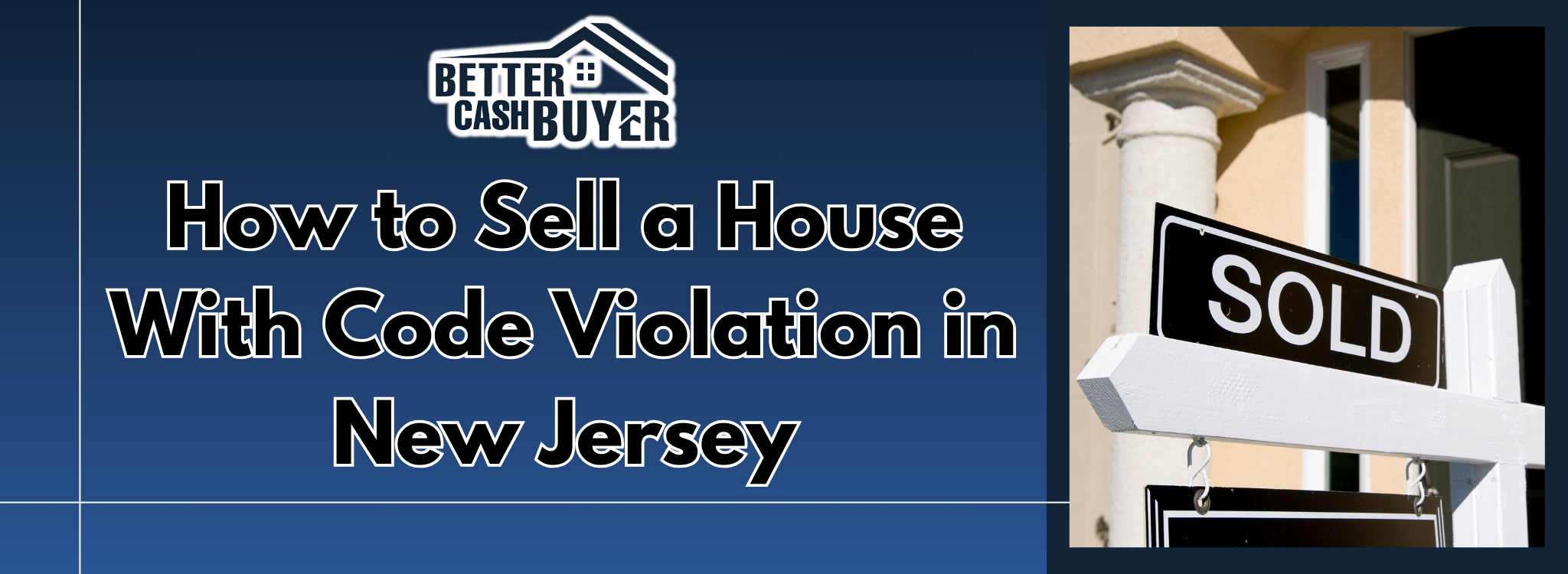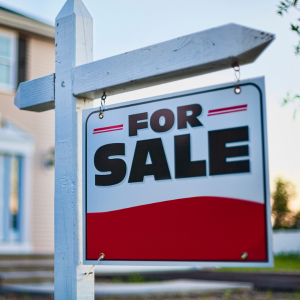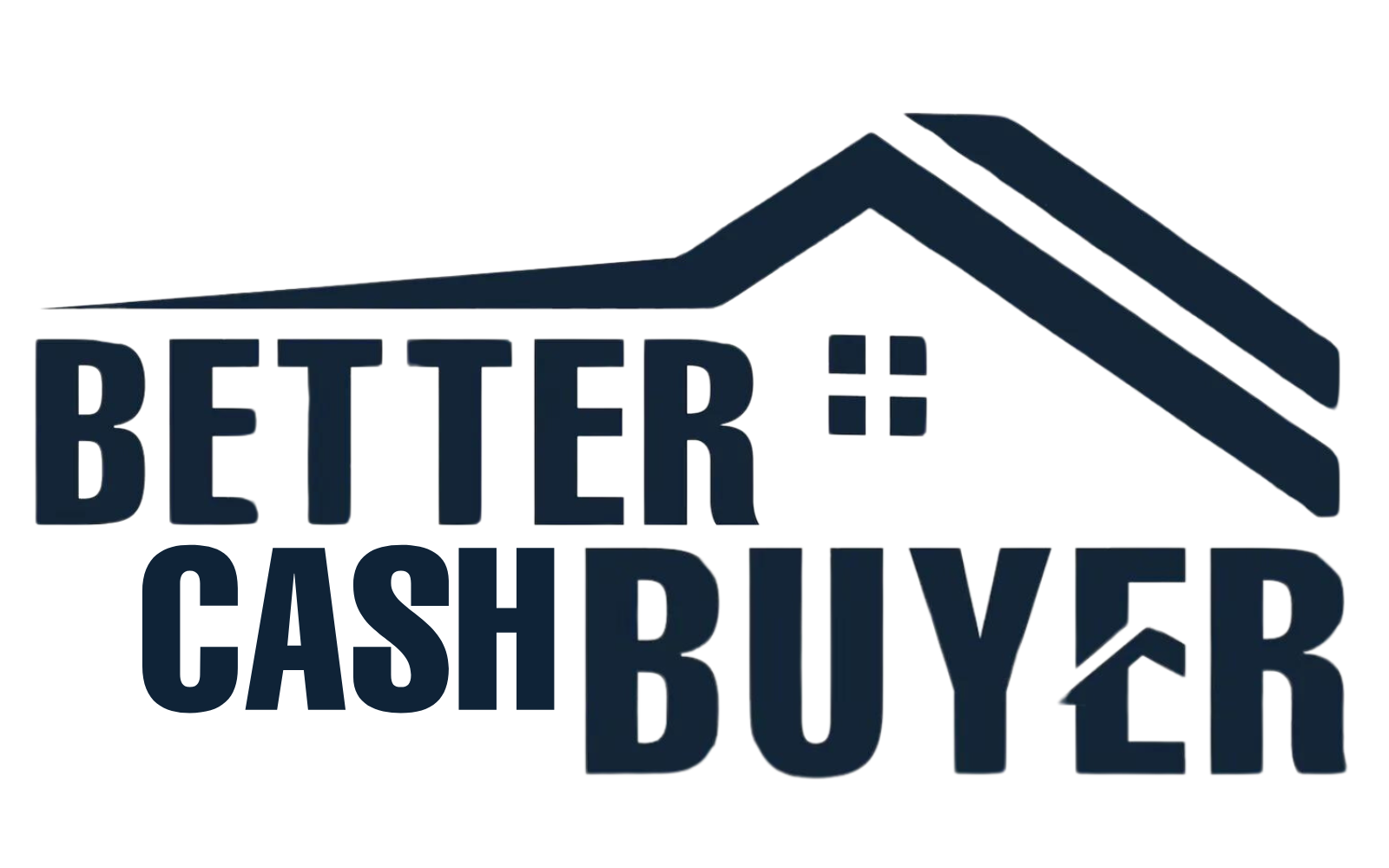
How Does Selling a House With Code Violations Work?
While selling a home with code violations may be difficult, it is feasible with the appropriate strategy. In states such as New Jersey, where regulations can be stringent, knowing the process to facilitate a successful sale is crucial.

What are the key steps in selling?
Here are the steps to sell a house with code violations:
- Identify the Violations: Get a complete inspection to find out all code violations.
- Assess the Severity: Knowing how severe the issues are can help you decide if you should fix them before selling.
- Consult a Real Estate Professional: Speak with a professional who understands selling properties with violations and the best methods to employ.
- Price Accordingly: Set a fair price by considering repair costs or any decrease in property value.
- Market the Property: Emphasize positive points while being upfront about any existing violations.
- Negotiate with Buyers: Be ready to discuss with buyers who may ask for repairs before finalizing the purchase.
Are there special considerations for New Jersey properties?
In New Jersey, specific real estate rules must be followed when selling a home:
- New Jersey Real Estate Regulations: Make sure to comply with New Jersey’s property laws and regulations.
- Disclosure Requirements: You must tell potential buyers about known code violations.
- Repair Strategies: Decide whether to fix major violations or sell the property “as-is.”
Evaluating the Severity of Code Violations
Understanding the severity of code violations is essential for knowing how they might affect your home’s appeal and value.
How can I assess the severity of my home’s code violations?
To gauge the severity of your home’s code violations:
- Conduct a Home Inspection: Hire a licensed inspector to find all violations.
- Review Compliance Requirements: Check what each violation needs for compliance.
- Consult Experts: Talk with contractors or legal professionals to understand the impact of each violation’s severity.
Can minor violations impact the sale?
Yes, even minor violations can affect the sale of your house:
- Impact on Home Value: These violations can reduce the perceived value of your property.
- Negotiation Leverage: Buyers might use minor violations to negotiate a lower price.
- Compliance Costs: Even minor fixes can add up and impact overall profit.
Handling code violations ahead of time can make the selling process easier, boost buyer confidence, and possibly increase your home’s value. For homeowners in New Jersey and elsewhere, understanding these factors is key to a successful sale.
How to Sell Your Home Efficiently With Code Violations
Selling a home with code problems can be difficult, but the process can be more efficient with the appropriate tactics. Here are some methods and strategies to help you succeed.

What strategies can help streamline the process?
- Understand the Violation: Start by clearly understanding the code violations. Doing so lets you decide whether to address the issues or sell the home as-is.
- Evaluate Your Options: Consider fixing the violations or adjusting your asking price. Each choice has its benefits depending on your timeline and budget.
- Obtain Necessary Permits: If you opt for repairs, ensure all work is up to code with the proper permits to avoid issues during the sale.
- Communicate Clearly: Be honest with potential buyers about the violations. Transparency builds trust and avoids future problems.
- Price Competitively: Consider pricing your home lower to attract buyers willing to handle repairs, which might speed up the sale.
How can I attract buyers despite the violations?
- Highlight Potential: Focus on the property’s positive aspects and what it could become after repairs.
- Market Strategically: Use marketing strategies targeting investors or DIY enthusiasts who see value in fixer-uppers.
- Be Transparent: Offer full details on the violations and repair estimates so buyers feel informed.
- Leverage Unique Features: Emphasize special features like location or renovation potential that make your property stand out.
Engaging a Real Estate Professional for Guidance
A real estate expert can be highly beneficial when selling a home with code violations. Real estate professionals have the skills necessary to ensure a smooth transaction.
Why should I consider hiring a real estate expert?
- Expertise and Experience: Real estate experts know how to handle complex transactions involving code violations.
- Market Insight: They offer market insights that help you set a competitive price and find the right buyers.
- Network Access: House Buyers have connections with professionals who can assist with repairs or inspections as needed.
What qualifications should I look for a House Buyer?
- Experience with Similar Sales: Find house buyers experienced in selling homes with code violations or similar challenges.
- Strong Negotiation Skills: A house buyer with good negotiation skills can help get the best deal.
- Local Market Knowledge: Ensure they understand local market trends and regulations.
By following these strategies and consulting the right professionals, you can efficiently sell your home, even with code violations. For more tailored advice, consider reaching out to Better Cash Buyer to explore your options and receive a cash offer.
Legal Implications of Selling a House With Code Violations
Selling a home with code violations can be tricky, especially when you need to understand the legal aspects. Homeowners must know their legal obligations, particularly in states like New Jersey, with specific real estate disclosure requirements.

What legal obligations do I have as a seller?
As a seller, you have key legal duties when selling a home with code violations:
- Disclosure Requirements: You must tell potential buyers about any known code violations. Being open about these issues helps maintain trust during the selling process.
- Real Estate Disclosure Requirements: You must follow strict disclosure rules in New Jersey. Informed potential buyers about code violations and other significant defects that could affect the property’s value or safety.
By meeting these obligations, you can prevent legal problems after the sale.
How does New Jersey law affect disclosure requirements?
The legislation in New Jersey has particular guidelines about what information dealers are required to divulge. To name a few key points:
- Disclosure Requirements: The law requires you to provide complete and accurate details about any known issues with the property, including code violations.
- Property Disclosure Laws: These laws ensure buyers know about the home’s condition, including any compliance issues with local building codes.
These laws can help smooth the transaction and protect you from legal issues.
Financial Considerations When Selling Your Home
To successfully sell a home that has code violations, it is essential to have a solid understanding of the financial implications. Understanding how these factors influence pricing and negotiations is critical for a successful sale.
How can code violations influence the pricing and negotiations?
Code violations can significantly affect pricing and negotiations:
- Impact on Home Value: Homes with unresolved code violations often sell for less because buyers may need to spend on repairs, lowering the property’s market value.
- Negotiating Price with Code Violations: As a seller, you might need to be more flexible with the price since buyers will incur additional costs to fix these issues.
- Selling a Distressed Property: Sometimes, presenting the home as a distressed property attracts investors willing to accept specific problems for a lower price.
What are possible costs involved in selling with violations?
Several costs can arise when selling a property with code violations:
- Repair Costs: Fixing violations before selling can be expensive but might increase the sale price.
- Pricing Adjustments: You may need to lower the asking price to cover the repair costs for the buyer.
- Closing Costs for Sellers: Consider typical closing costs in New Jersey, including transfer taxes and attorney fees. If extra legal work is needed, selling a property with issues may lead to higher closing costs.
Understanding these financial elements will help you make informed decisions and prepare effectively for the selling process.
How to Market a Property With Code Violations
It can be hard to sell a house that doesn’t follow the rules. But by using the proper marketing techniques, you can get buyers who see promise. It’s essential to know about the New Jersey home market.

What marketing tactics work best for these sales?
When selling a house with code violations, consider these marketing strategies to tackle challenges and draw in buyers:
- Highlight Potential: Focus on what the property could be worth after renovations. Buyers looking for fixer-uppers are often searching for investment opportunities.
- Targeted Advertising: Use real estate platforms known for listing fixer-uppers to reach buyers looking for such properties.
- Virtual Tours: Provide detailed virtual tours so buyers can see the work needed.
Stay updated with New Jersey real estate market trends to adjust your strategies as needed.
Can transparency in marketing affect buyer interest?
Transparency is key when selling a property with issues like code violations. Here’s how it affects buyer interest:
- Builds Trust: Being honest about code violations can create trust with buyers. Ethical selling practices usually lead to smoother deals.
- Educates Buyers: Sharing detailed information helps buyers know what to expect, which might keep or even increase their interest.
- Expert Guidance: Working with a home buyer experienced in such sales can help you communicate these details effectively.
Transparency impacts perceived value and aligns with ethical standards in real estate.
Discovering Alternatives: Selling As-Is or with Repairs
Deciding whether to sell a property as-is or after making repairs requires considering several factors. Each option has benefits depending on the situation.
What are the pros and cons of selling as-is?
Selling a property as-is can offer a quick solution, especially in the New Jersey real estate market. Here are the main advantages and disadvantages:
Pros:
- Rapid Sale: The absence of repair time expedites the process.
- Lower Costs: Save money on repairs and possibly reduce closing costs.
- Attracts Investors: Appeals to investors looking for renovation projects.
Cons:
- Reduced Sale Price: Offers may be lower due to perceived risks.
- Limited Buyer Pool: Fewer traditional buyers, as many want move-in ready homes.
- Disclosure Obligations: You must disclose existing code violations according to New Jersey requirements.
Understanding code violations will help you navigate these pros and cons effectively.
When is it beneficial to make repairs before selling?
Sometimes, making repairs can significantly increase a property’s marketability. Here’s when fixing code violations might be worthwhile:
- Increased Home Value: Solving major issues can boost value, resulting in better offers.
- Broader Appeal: A well-maintained home attracts more buyers who want fewer renovations after purchase.
- Stronger Negotiating Position: If significant issues are already fixed, fewer repair-related discussions will occur.
Balancing the advantages of repairs with the costs and potential profits is essential to optimize your sales strategy. Local experts can offer customized guidance regarding home selling strategies in New Jersey.
Better Cash Buyer can help navigate these options, ensuring a strategy tailored to your property’s unique needs.
How to Choose the Right Buyer for a Home With Code Violations
It can be hard to sell a house that doesn’t follow the rules, but finding the right buyer can help. This part discusses different ways to buy real estate in New Jersey, such as paying cash or investing.

Should I target cash buyers specifically?
Targeting cash buyers can help you achieve a quick property sale in New Jersey. They offer speed and simplicity, bypassing lengthy financial procedures that traditional buyers face—especially valuable when dealing with code violations:
- Rapid Closures: Cash purchasers, including New Jersey real estate investors, can complete transactions in days.
- Fewer Obstacles: Cash buyers usually have fewer requirements, speeding up the home sale.
- Buying As-Is: Some investors prefer buying properties without requiring repairs.
Focusing on cash buyers might be the right choice if you sell your house with code violations.
What questions should I ask potential buyers?
When evaluating offers, ask potential buyers these questions:
- What’s your experience with properties like mine?
This helps assess if they are ready to handle code violations. - Do you know about buyer’s rights in New Jersey?
Ensure they understand local laws to avoid legal issues. - How will you negotiate the price with code issues?
Understanding their negotiation tactics gives you insight into pricing flexibility. - Will you fix the code violations before resale?
This reveals if they’re experienced in handling such properties or plan to flip post-repairs.
Exploring Case Studies and Real-Life Examples
Learning from others’ experiences provides valuable insights into selling a property with code violations. Here are some examples and lessons.

Have other homeowners successfully sold with violations?
Yes, many have sold their properties, even with code issues. Consider these real-life examples:
- Selling an Older Home in New Jersey: A family sold their century-old house with several code issues by attracting investors interested in its historic charm and potential, not just the problems.
- Selling a Distressed Property: Another homeowner succeeded by working with Better Cash Buyer, focusing on the property’s location and future value after renovation.
These examples show that selling is possible with the right approach and buyer focus.
What lessons can be learned from past sales?
From past sales, here are key takeaways:
- Impact of Code Violations on Home Value: While violations might lower your asking price, they don’t block a sale. Being honest about these issues can build trust with buyers.
- Fixing Minor Violations Before Listing: Address small issues before listing to attract more buyers. Simple repairs can significantly boost interest.
- Knowing New Jersey Real Estate Regulations: Understanding local laws ensures you follow the rules and avoid unexpected issues during the sale.
Applying these strategies and learning from others can enhance your chances of a successful sale, even with code violations. Each property is unique, so understanding your situation is key.
FAQs:
How can I sell a house with code violations in New Jersey?
Selling a home with code violations in New Jersey can be tricky, but it is doable. You might consider selling “as-is” to a real estate investor. Investors often buy homes for cash quickly and handle these issues, reducing hassle and speeding up the sale.
What are common fines associated with code violations in New Jersey homes?
In New Jersey, fines for code violations differ based on the infraction’s severity. Common violations involve building codes, housing regulations, and property upkeep. Address them promptly to prevent escalating penalties.
How do code violations affect the value of my home in New Jersey?
Code violations can lower your home’s value by scaring off buyers. They might see the property as risky or needing expensive repairs. Fixing these issues before listing can keep your market price fair and ease negotiations.
Is it better to fix code violations or sell my New Jersey home as-is?
The choice between fixing violations or selling as-is depends on your situation. Fixing violations can boost your home’s value if you can afford it. Selling as-is to an investor might be faster and less stressful if you need more time or money.
What steps should I take to resolve code violations before selling in New Jersey?
Start with a pre-sale home inspection to find issues. Then, work with a professional to fix problems and meet New Jersey property codes. This proactive approach avoids surprises during the sale.
Can I sell my New Jersey property without using a real estate professional?
Yes, you can sell without a professional, especially to a cash buyer or investor. This can save commission fees and speed up the sale. However, you’ll need to understand New Jersey real estate rules and disclosure laws.
What are my options if I inherit a home with code violations in New Jersey?
Consider consulting a real estate attorney if you inherit a home with code violations. They can guide you on legal duties, tax impacts, and whether to repair or sell the property.
How does selling a distressed property differ from a regular sale in New Jersey?
Selling a distressed property involves extra challenges like code violations or financial liens. You’ll likely need to focus more on marketing, pricing competitively, and negotiating with buyers who accept homes needing significant repairs.
Key Insights
- Selling a home with code violations in New Jersey can be tough. Understanding New Jersey real estate regulations and housing code violations is key to navigating the process.
- Code violations in new homes can lead to fines on the property. Knowing New Jersey’s property disclosure laws helps you stay transparent and compliant.
- To address potential building code violations, consult a real estate attorney in New Jersey or hire a professional real estate professional to guide you through the house selling process.
- Selling property with issues like municipal code violations may lower home value. You can negotiate repairs with buyers or consider selling as is.
- For a quick sale in New Jersey, consider cash home buyers or real estate investors. This option reduces stress and hassle, allowing the home to be sold fast.
- Fix major violations before listing to avoid problems during New Jersey foreclosure alternatives or when selling a distressed property.
- New Jersey homeowner responsibilities include resolving code violation fines and fixing serious issues before selling.
- Strategies for difficult sales involve marketing a house with problems and understanding New Jersey property taxes and closing costs for sellers.
- Weigh remodeling versus selling as is to see if fixing New Jersey property code violations leads to a fair cash offer.
- Engage with potential buyers by highlighting benefits of dealing with professional investors who provide offers covering legal and transaction aspects well.
These findings apply across all of New Jersey, including areas in and around Paterson, Atlantic City, Ocean City, Newark, Bridgeton, and Union City. If you need further assistance, please get in touch with us at (347) 386-2549. visit our website, to learn more about our company.


